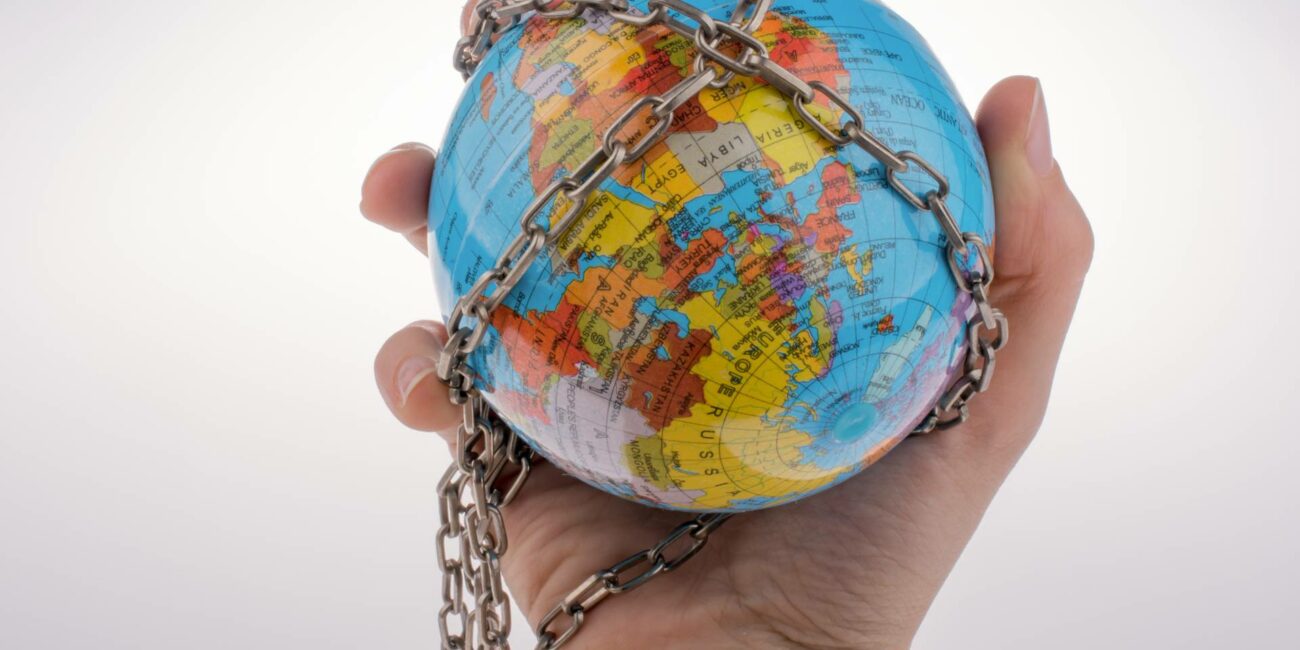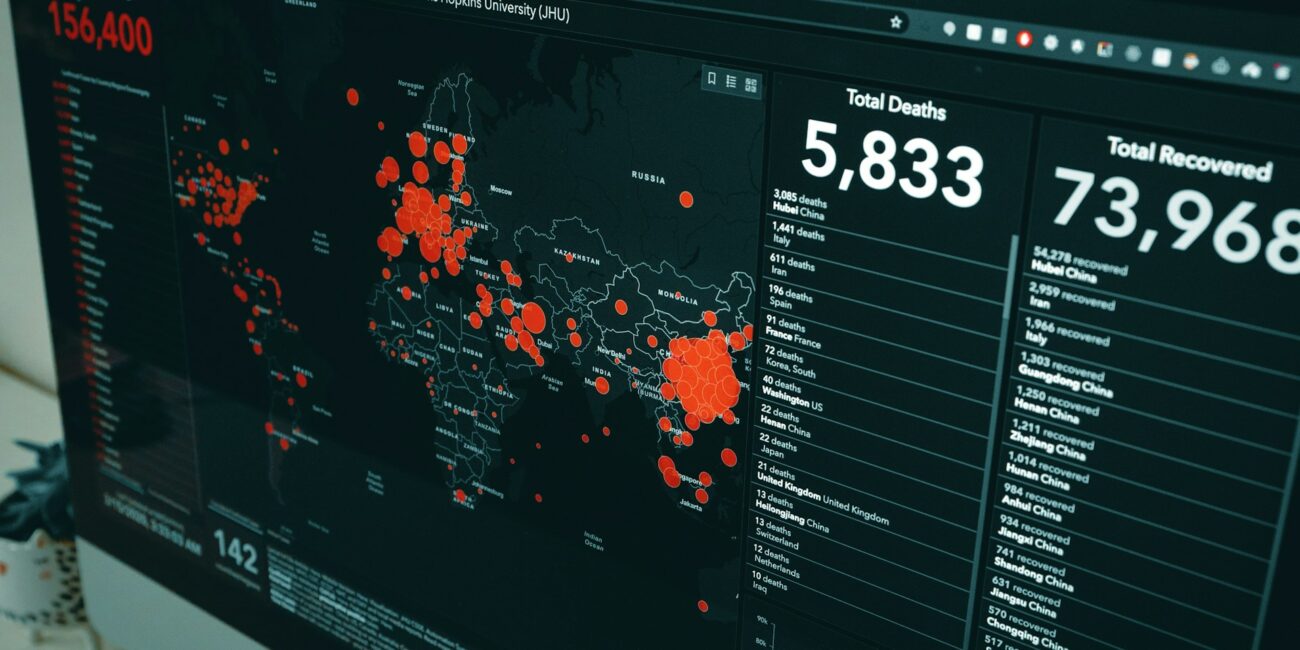Republished with permission from A Lily Bit
In June, an international Summit for a New Global Financing Pact took place in Paris, drawing government leaders and influential figures from various think tanks worldwide. Notable participants included António Guterres, the Secretary-General of the United Nations, Janet Yellen, the US Treasury Secretary, Kristalina Georgieva, the Managing Director of the IMF, and Ajay Banga, the President of the World Bank.
The primary objective of the summit was to explore financial solutions aimed at addressing poverty while also addressing the pressing issue of “planet-heating emissions.” As is customary in climate change-related gatherings, discussions in Paris inevitably gravitated toward the idea of centralizing power at an international level and establishing a global consortium to tackle challenges that some believe individual sovereign nations might be unable or unwilling to address.
In recent years, there appears to be a noticeable convergence of narratives. Central banks and international financial institutions are showing a sudden and heightened interest in carbon taxation and global warming, seemingly overshadowing their concerns about stagflation and economic collapse. This shift in focus raises suspicions that their true objective all along was to incorporate the climate change agenda into their broader plan, including the so-called “Great Reset.”
Globalists are no longer concealing their intentions, as they openly link the climate change issue with international finance and monetary authority. The climate change agenda is now openly acknowledged as an integral part of the Great Reset agenda. Moreover, there are suggestions that the perceived threat of climate change might be utilized as a catalyst to grant global banks greater power in shaping wealth distribution and to dismantle the existing system, paving the way for its replacement with a new framework.
During the Paris summit, French President Emmanuel Macron emphasized the necessity for a significant “public finance shock” to combat global warming and simultaneously promote “equity” for less affluent nations. He expressed concerns that the existing system was ill-equipped to effectively address the world’s pressing challenges.
Speakers at the event acknowledged that the international economic framework had endured numerous crises, such as the pandemic and the conflict in Ukraine. However, their primary focus was on highlighting the escalating financial repercussions of weather-related disasters exacerbated by global warming, which continue to destabilize financial systems worldwide.
It is evident that the claims made in linking economic decline to climate change are nonsensical, but they seem to align with the narrative globalists are trying to propagate. However, it is important to note that there is absolutely no empirical evidence to support the idea that global weather events are worse now than they were before the rise of carbon-producing industries over a century ago. There is no established link between carbon emissions and specific weather phenomena, making such claims fraudulent. As previously discussed in other articles, there is no verifiable evidence supporting the existence of a man-made climate crisis.
Despite the lack of concrete evidence, the fear surrounding the notion of a climate crisis may still deceive a considerable number of people. The question remains, how can this exaggerated fear be exploited?
The continuous bombardment of global warming propaganda may not be coincidental. Those in power might be seeking an existential crisis to generate fear among the public.
Barbados Prime Minister Mia Mottley, much like other globalists, advocates for a complete reimagining of the role played by the World Bank and the International Monetary Fund in light of perceived climate risks. She contends that mere reform of these institutions is insufficient; instead, a fundamental transformation is necessary to address the perceived dangers posed by climate change.
According to UN leader António Guterres, the current global financial system, which originated after World War II through the Bretton Woods Agreement, is failing to address modern challenges and is perpetuating and exacerbating inequalities. Consequently, he advocates for a new version of the Bretton Woods framework that reflects contemporary values and priorities.
Guterres believes that immediate action can pave the way for substantial progress towards achieving global justice. To this end, he proposes a stimulus of $500 billion annually to be directed towards investments in sustainable development and climate action. Additionally, there is a proposal to utilize the IMF’s Special Drawing Rights basket to enhance global liquidity.
It is essential to keep in mind that the current economic crisis is not a result of external factors like COVID-19, the war in Ukraine, or climate change. Instead, it is attributed to the fiat stimulus measures adopted by central banks and the interest rate policies employed by global bankers. These monetary manipulations have led to a 40-year-high inflation rate and have compelled central banks to raise interest rates amid economic fragility. Unfortunately, such strategies have historically resulted in debt crises and stock market collapses. Consequently, placing the responsibility of fixing the crisis on bankers and globalists, who are considered to be the source of the problem, might not be the most prudent approach.
However, despite their role in causing the calamity, these individuals are now attempting to seize control and implement a sweeping Reset plan. The question arises, what is the ultimate destination of this endeavor?
Last year, the UN proposed that developed and emerging economies, such as the US and China, contribute to a wealth/emissions tax, amounting to at least $2.4 trillion annually, which would fund climate change initiatives and be redistributed to less affluent nations. The process of redistribution would be orchestrated by the globalists themselves.
Other proposals being considered involve imposing taxes on fossil fuel profits and financial transactions to generate climate funds. In essence, this implies taxing oil and gas to the extent that prices soar, eventually becoming unaffordable for the public.
Macron, in particular, has lent his support to the idea of an international tax on carbon emissions from shipping, ostensibly aimed at raising the costs of overseas freight and reducing manufacturing demand. This complements the stringent carbon regulations already being applied to European agriculture.
These measures might appear to be disjointed plans focused on inflating prices through various forms of taxation and encouraging reduced consumption of goods. However, there is a more significant underlying scheme at work here. Climate change is being utilized as a means to establish a fully centralized global economic system, with organizations such as the IMF, BIS, World Bank, and the UN potentially assuming control.
The annual payments made by wealthier nations into global institutional funds can be seen as acts of tribute, demonstrating loyalty to this system. It also serves to create a stronger interdependency among various countries and globalist institutions. By having vast sums of money flow through these organizations and giving them the authority to redistribute wealth, they gain the ability to wield rewards and punishments. They can penalize countries that fail to comply with their directives and provide advantages to those that align with their agenda.
There are indications that the push for a new Bretton Woods system may be leading towards a currency crisis, which globalists could exploit as an opportunity to introduce their Central Bank Digital Currency (CBDC) model. Once CBDCs are implemented, it could grant them complete control over the populace. A cashless system lacking transaction privacy would enable authorities to exercise control over individuals and groups, curtailing their buying power at their discretion, resembling a totalitarian’s dream scenario.
The continuous bombardment of global warming propaganda may not be coincidental. Those in power might be seeking an existential crisis to generate fear among the public. Fearful people tend to react irrationally and may look to leaders offering seemingly immediate relief, even if not the best choices. Addressing a global threat like climate change could be presented as requiring a global response, further consolidating their authority.
Should the public embrace climate change disaster narratives propagated by the media, it could facilitate numerous systemic changes. Some of these changes may have little to do with the environment, but instead serve the purpose of strengthening financial dominance over the populace.
The proposals of national wealth taxation and redistribution, the involvement of the IMF and World Bank as mediators for global funds, the potential use of the IMF’s SDR basket as a global currency umbrella, and the introduction of CBDCs and a cashless society might not have any direct impact on climate change, even if it were a legitimate threat.
However, there is a concerning aspect known as the “scorched earth” model. Under this scenario, the ultimate intent may be to damage the economy deliberately to the extent that most industries collapse, trade shrinks, and the population declines due to unbearable living conditions. Some might argue that globalists are justifying such actions as “saving the planet” by reducing the human population. If keeping the population in perpetual poverty is believed to mitigate global warming, then some individuals might support such an agenda.
Regardless of the specific goal, whether it involves economic micromanagement or the forced liquidation of production, the end result would be increased power for internationalists and a decrease in freedom and prosperity for the general population.
However, it’s packaged, the elites’ calls for a “financial shock” are nothing short of a drastic throttling of the system, intended to destabilize it to the point where it can no longer support the current population. Their pleas for global taxation and tribute in the name of “equality” are not aimed at elevating everyone’s wealth; rather, they seek to bring about a state of equal impoverishment for all. And when they advocate for centralized oversight of nations to supposedly save the planet, it’s a mere guise for their true agenda of establishing global governance.
These powerful forces are orchestrating a grand scheme, one that seeks to consolidate control over the masses and concentrate power in the hands of the few. By manipulating financial systems, promoting global taxation, and advocating for centralized governance, they aim to reshape the world according to their own vision, disregarding the well-being and prosperity of ordinary people.
The consequences of such actions would be catastrophic, leading to a loss of personal freedoms, a decline in living standards, and the erosion of national sovereignty. It is crucial for people to remain vigilant and informed, questioning the narratives put forth by those in power and safeguarding the principles of individual liberties. The future hangs in the balance, and only by recognizing the true intentions behind these proposals can we hope to resist the encroachment of a world dominated by a select few.
My Substack is where I am dedicated to providing my readers with valuable insights into the Great Reset and the World Economic Forum. My in-depth analysis reveals the enduring strategies and implications behind these movements, shedding light on the underlying motivations and agendas that have shaped them for millennia while offering historical context. I am committed to providing accurate and thought-provoking content on this important topic. I believe that understanding the Great Reset and the World Economic Forum is essential to making informed decisions about our future.




